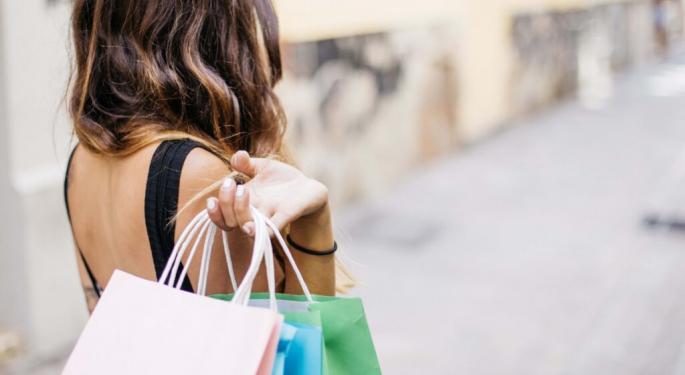Bringing AI To Fashion: These Startups Are Changing How We Approach Personal Style— And Cutting Costs For Retailers
The use of generative AI in online shopping is on the rise, an Adobe Analytics survey found. The survey, which was released in March, says that retail traffic from generative AI sources has been doubling every two months since last September.
While those numbers are still low when compared to other uses of generative AI, they've been steadily rising since 2024.
Of those polled by Adobe, 39% of respondents said they had used generative AI for online shopping, and 53% planned to do so at some point this year.
Don't Miss:
- The same firms that backed Uber, Venmo and eBay are investing in this pre-IPO company disrupting a $1.8T market — and you can too at just $2.90/share.
- ‘Scrolling To UBI' — Deloitte's #1 fastest-growing software company allows users to earn money on their phones. You can invest today for just $0.30/share.
Several established platforms have introduced fashion-related tools that are helping drive some of that traffic. Google has Doppl, a tool that allows users to create an avatar of themselves to try on potential purchases. OpenAI launched an AI Agent that can shop for users on the web, among other things, and Amazon (NASDAQ:AMZN) is testing a similar feature with its own AI platform.
In addition to these bigger tools, a handful of fashion-oriented AI startups have popped up, revolutionizing personal style and cutting costs for retailers.
Daydream is a new addition to the fold. The platform aims to make online shopping easier by allowing users to search for items exactly the way they'd describe them to a friend. So instead of searching for something generic like "yellow dress" and then having to comb through thousands of options at varying price points, they can type in "revenge dress to wear to a party in Sicily in July" and get more tailored options.
Trending: If there was a new fund backed by Jeff Bezos offering a 7-9% target yield with monthly dividends would you invest in it?
According to CNN, the company has raised $50 million in its first round of funding, drawing contributions from Google Ventures and model Karlie Kloss. With over 8,000 brand partners, including major brands like Uniqulo and Gucci, the app is not reliant on ad-based rankings but rather highlights products because they're likely to be a good match for the customer.
Fit:Match is another fashion AI startup in the space. The app uses a patented 3D technology to match users with clothing that flatters their body shapes. It aims to lower return rates by allowing users to see what an item will look like on them before they make a purchase. So far, the platform has raised over $15 million in funding and is operating in 52 regions around the world.
Raspberry AI focuses on manufacturers rather than consumers, using generative AI to help brands make better decisions.
See Also: $100k+ in investable assets? Match with a fiduciary advisor for free to learn how you can maximize your retirement and save on taxes – no cost, no obligation.
Raspberry AI is a platform built specifically for product design. Billing itself on its website as "the design assistant you deserve," the app can do everything from gathering and organizing trend research to creating 2D technical drawings and product images. Earlier this year, the company raised over $24 million in first-round funding and has partnered with H&M, Crocs (NASDAQ:CROCS), and Loft.
Daydream founder Julie Bornstein told CNN that it will be startups like these, not the major tech giants, that take AI shopping to the next level.
"They don't have the people, the mindset, the passion to do what needs to be done to make a category like fashion work for (AI) recommendations," Bornstein said. "Because I've been in this space my whole career, what I know is that having the catalogue that has everything and being able to show the right person the right stuff is what makes shopping easier."
Read Next: Warren Buffett once said, "If you don't find a way to make money while you sleep, you will work until you die." Here’s how you can earn passive income with just $10.
Image: Shutterstock
© 2025 Benzinga.com. Benzinga does not provide investment advice. All rights reserved.
Posted-In: news access Startups AccessNews



